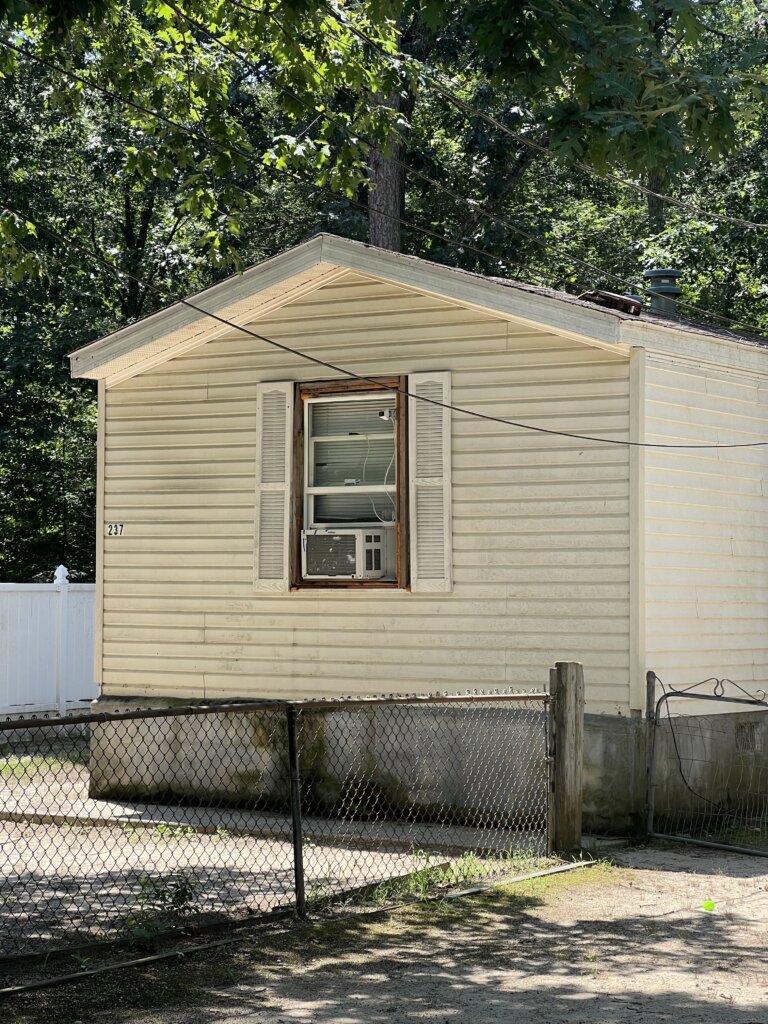Investing in real estate has always been a popular choice for those seeking to build wealth and secure their financial future. Mobile homes, also known as manufactured homes, offer an affordable entry point into the real estate market. In Pennsylvania, where the real estate landscape is as diverse as its geography, manufactured homes can be an attractive investment option. In this article, we’ll explore the pros and cons of investing in mobile homes in PA, allowing you to see the insights that you need to make an informed decision on whether or not a mobile home is a good investment in Pennsylvania area.

Mobile Home in Pennsylvania
Pros of Investing in Mobile Homes in Pennsylvania
Low Entry Cost
The affordability of Pennsylvania mobile homes can be a deciding point for everyone entering the real estate investment arena, particularly first-time investors and those with limited resources. Such properties often boast a lower initial buying cost in contrast to conventional houses. This not only diminishes the entry threshold but also empowers investors to utilize their financial assets effectively, creating space for additional investments or property enhancements.
Lower Carrying Costs
Investing in mobile homes in Pennsylvania offers the benefit of lower utility and maintenance costs. Thanks to their compact size and efficient designs, these properties typically demand less energy for heating and cooling, leading to decreased utility expenses. Moreover, maintenance and repair costs are usually more manageable due to the smaller footprint and fewer components to maintain. This efficiency allows investors to allocate their resources effectively, potentially enhancing cash flow from their investments.
High Demand
The persistent demand for affordable housing, including mobile homes, remains strong in Pennsylvania, driven by the state’s thriving economy and population expansion. With its buoyant job market and appealing cost of living, Pennsylvania consistently draws in new residents, establishing a reliable stream of potential tenants in search of affordable housing solutions such as mobile homes to fulfill their accommodation requirements.
Potential for Cash Flow
Mobile homes have the potential to provide a dependable stream of rental revenue, especially in areas with robust housing demand and diligent property upkeep. In such locales, mobile homes can attract a varied tenant base, ranging from those in search of economical housing to retirees desiring a convenient and hassle-free living arrangement. This versatility renders them an enticing investment option for landlords seeking steady rental yields. Furthermore, the prospect of low vacancy rates and a secure rental market enhances the allure of mobile homes as a lucrative income-generating asset.
Cons of Investing in Mobile Homes in Pennsylvania
Depreciation
Mobile homes typically depreciate in value over time due to their shorter lifespan and classification as personal property rather than real estate. Unlike traditional homes, which often appreciate with age and the land they occupy, manufactured homes are subject to wear, technological obsolescence, and maintenance challenges, impacting long-term investment returns negatively.
Limited Appreciation
While the land underneath a mobile home may appreciate, the structure itself usually doesn’t experience significant appreciation. This dynamic can restrict potential profits upon resale, as the primary asset in mobile home investments tends to be the land rather than the home.
Tenant Turnover
Mobile home tenants often have higher turnover rates than those in traditional housing, driven by factors like job changes or financial fluctuations. Increased turnover can lead to potential vacancies, resulting in higher turnover costs for landlords, such as advertising expenses and maintenance between tenants, underscoring the importance of effective property management and tenant retention strategies.
Location Sensitivity
The success of a mobile home investment hinges on its location, with factors like job opportunities, schools, and amenities significantly influencing tenant demand and property value. Investing in areas with strong economic fundamentals and essential amenities can bolster demand and long-term appreciation, underscoring the importance of location selection for investors.
Regulatory Considerations
Mobile homes are subject to a complex array of local regulations, zoning laws, and park rules that vary by jurisdiction. These regulations impact investment opportunities and management, dictating placement, usage, and maintenance standards. Staying abreast of evolving local laws is crucial as they can influence the feasibility and profitability of mobile home investments.
Factors to Consider When Investing in Mobile Homes in Pennsylvania
Location
Thoroughly research potential investment areas, taking into account factors like proximity to employment hubs, educational institutions, and amenities.
Condition of the Home
Conduct comprehensive inspections and assessments to evaluate the condition of the mobile home, identifying any necessary repairs or renovations.
Financing Options
Explore various financing options tailored to mobile home investments, as they may differ from traditional real estate financing solutions.
Tenant Screening
Implement a rigorous tenant screening process to reduce turnover and ensure a stable rental income.
Maintenance and Management
Develop a proactive maintenance and management strategy to address repairs promptly and preserve property value.
Investing in mobile homes in Pennsylvania offers an opportunity for individuals with limited capital or those seeking portfolio diversification. However, it’s crucial to weigh the advantages and disadvantages, assess location and property conditions, and establish effective management practices. Successful investment in mobile homes in Pennsylvania hinges on informed decision-making and diligent management to optimize returns and mitigate risks.
